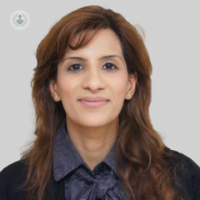Autism explained: A guide to the spectrum
Autore:Autism, a term often heard but sometimes misunderstood, refers to a spectrum of conditions characterised by challenges with social skills, repetitive behaviours, speech, and nonverbal communication. In her latest online article, Dr Roz Halari sheds light on this complex yet fascinating condition, providing clarity and understanding for those who may be affected by it.

What is autism?
Autism, or autism spectrum disorder (ASD), encompasses a wide range of conditions that affect an individual's social interaction, communication, interests, and behaviour. It is termed a "spectrum" because the severity and symptoms can vary greatly from person to person.
Understanding the symptoms
Symptoms of autism typically appear in early childhood and persist into adolescence and adulthood. These symptoms may include challenges in social interaction, difficulty in communication, repetitive behaviours, and unique strengths and differences in thinking and learning.
Social challenges
Individuals with autism may find it challenging to understand social cues, engage in reciprocal conversations, or establish friendships. They may prefer to be alone and struggle with understanding others' emotions.
Communication difficulties
Communication difficulties in autism can range from delayed speech development to a complete absence of spoken language. Some individuals may use alternative forms of communication such as gestures, pictures, or electronic devices.
Repetitive behaviours
Repetitive behaviours, such as hand-flapping, rocking, or lining up objects, are common in autism. These behaviours can provide comfort or help regulate sensory input for individuals with autism.
Sensory sensitivities
Many individuals with autism experience sensory sensitivities, such as being hypersensitive to certain sounds, textures, or lights. These sensitivities can cause discomfort or distress and may impact daily functioning.
Embracing neurodiversity
It is essential to recognise and embrace the diversity within the autism spectrum. Each individual with autism has unique strengths, challenges, and perspectives that contribute to the richness of our society.
Seeking support and resources
If you suspect that you or a loved one may have autism, seeking support from healthcare professionals, such as paediatricians, psychologists, or autism specialists, can provide valuable guidance and resources. Intervening early and accessing support services can greatly enhance the prospects and outcomes for individuals living with autism.
Dr Roz Halari is an esteemed consultant in clinical neuropsychologist. You can schedule an appointment with Dr Halari on her Top Doctors profile.


